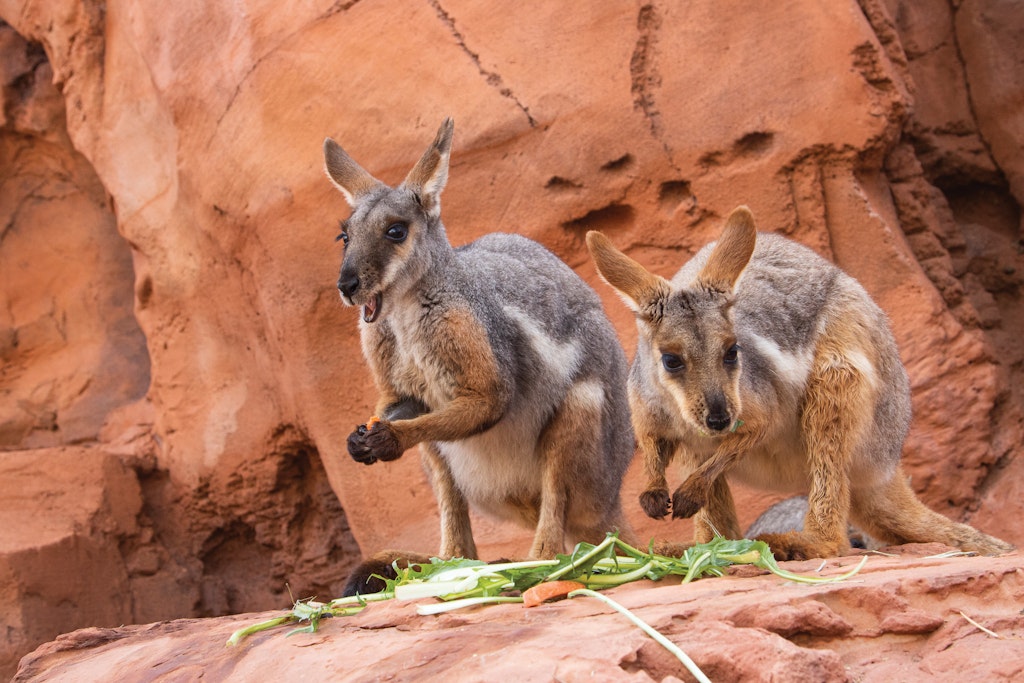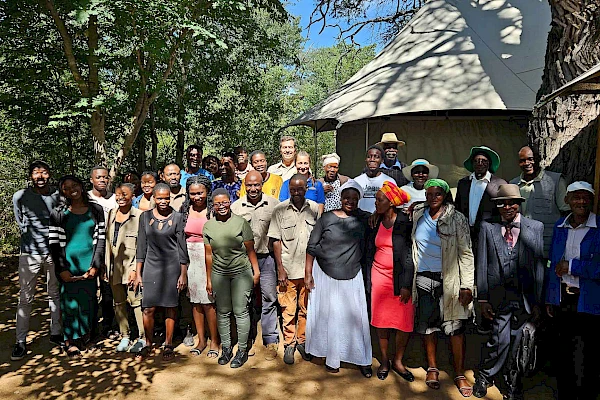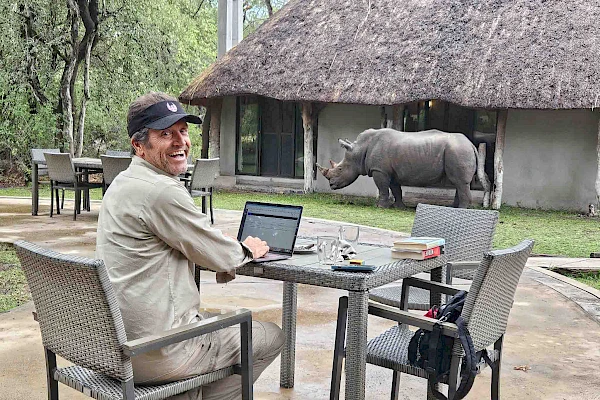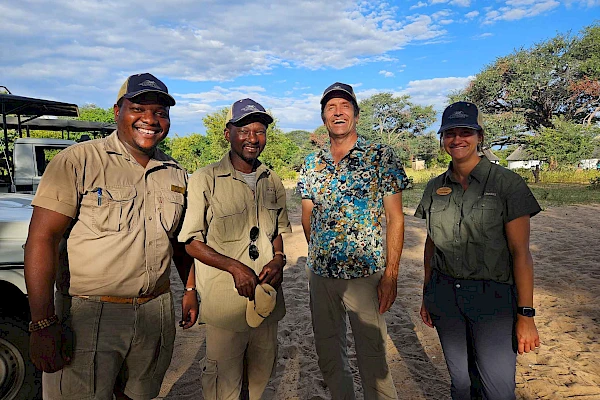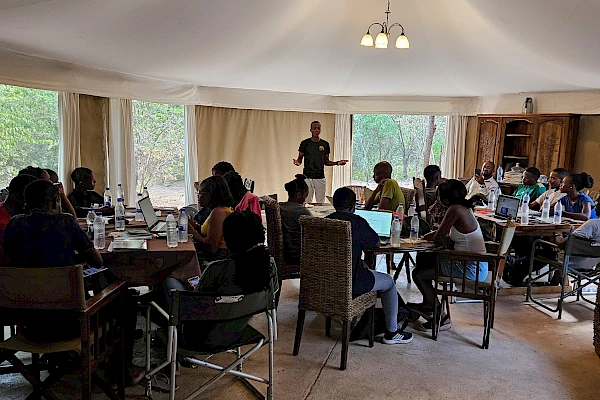By: James Danoff-Burg
Contact: jdanoffburg@livingdesert.org
Respect makes everything possible. If someone were to come to our home and dictate, “This is what you must do with your home. Trust us, we know what we are talking about,” most of us would tell them to get lost! Each of us must retain the ability to determine how we manage our land, our actions, and our community. Outsiders lecturing on conservation without respect are similarly unlikely to succeed. That’s why, at The Living Desert, we prioritize serving, learning from, and collaborating with local communities. This commitment was underscored by a recent experience in Zimbabwe, where our team was honored with eleven watermelons from the kind and appreciative communities during surveys!
Our most recent Building Community Conservation Success social science training workshop near Hwange National Park departed from our usual five-day format. As described in a previous post, we extended it to ten days, with three days dedicated to field data collection. The success of this program was evident in the overwhelmingly positive feedback from students at Lupane State University and the National University of Science and Technology. However, for this blog post I’d like to focus on the responses of the Indigenous People and Local Communities whom our students interviewed, particularly their reactions to our findings.
Hwange National Park is unique in that it is bordered on three sides by protected forestry and mixed-use areas, while the southern boundary is inhabited by thousands of people in the Tsholotsho Communal Lands. This land, overseen by the Tsholotsho Rural District Council, is characterized by a strong sense of community and communal land ownership, alongside a focus on self-sufficiency. The Matebele people residing here are deeply traditional and religious, placing significant emphasis on courtesy and respect for elders.
Half of our course’s 20 students were from neighboring communities and were well-versed in the customs expected when visiting homes for social science interviews. These customs ranged from appropriate attire and greetings to gestures of gratitude, all carefully observed to be maximally respectful of the local culture. Local students compiled a comprehensive guide to these customs, which all participants followed before engaging with the community.
Despite the kindness of the students, it was still surprising to see how warmly these gracious but underprivileged individuals responded to our respectful students. Approximately 10% of the 117 people interviewed generously gifted the students whole watermelons, a gesture that symbolized hospitality and goodwill. These gifts, totaling 11 watermelons, were displayed in our classroom during data analysis, and we gratefully indulged during breaks.
The most significant cultural outcome of our two-week endeavor was the final presentation of our findings to community elders and leaders. After extensive surveying and learning, I was apprehensive about how the community leaders would receive the results presented by our students. However, their pride in the students’ accomplishments was evident, and they commended their efforts. Imvelo Safari Lodge staff also praised the depth and quality of our collaborative work.
The most meaningful praise was echoed by several leaders, and most notably the second most important leader in the region, the Ward 4 Headman who remarked, “What you have summarized is exactly what we feel.” Such validation is invaluable when endeavoring to represent the perspectives of entire communities on large-scale conservation projects. Respect enhances success in every endeavor.
I am immensely proud of our students, their instructors, and the Imvelo staff. I’m also deeply grateful to the community participants who shared their insights with us. The success of this endeavor was not solely the result of efforts from The Living Desert, Katie Shaw, and myself; it truly was a collective effort. The majority of our students expressed a desire to incorporate these approaches into their future careers, with some even considering conservation social science as their lifelong pursuit.
What did we uncover that was so compelling and beneficial for both rhino conservation and community well-being? For that, you’ll have to stay tuned for the next blog by my colleague Katie Shaw!
Thanks for helping to make all of this great work happen by supporting The Living Desert!
Yours in Conservation.
